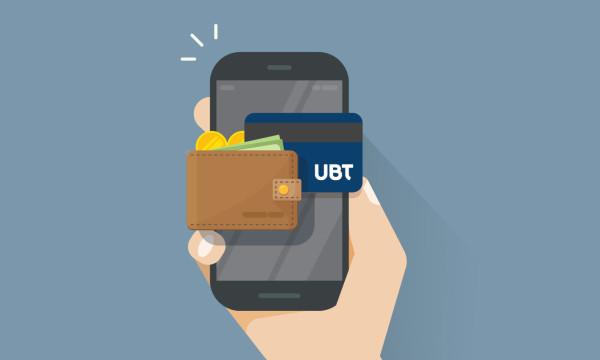Understanding account roles: Owner, signer, and power of attorney

Managing financial accounts can feel like navigating a maze — especially when ensuring that your financial affairs, or those of a loved one, are in good hands. Understanding roles like owner, signer, and power of attorney (POA) is a great step in the right direction. In this article, we’ll review POA basics and answer some common questions as they pertain to your UBT accounts.
What is a power of attorney?
You’re no doubt familiar with a POA document, but we’ll offer a quick refresher. This document names a person (or persons) to manage your personal, financial, and/or legal affairs in the event you are unable. This might be because of travel, military deployment, or because you have become ill or incapacitated.
There are several types of POAs, each serving a unique purpose:
- General POA: Offers broad authority over financial and legal matters.
- Durable POA: Stays effective even if the principal becomes incapacitated.
- Medical POA: Used for healthcare-related decisions.
- Limited POA: Grants authority for specific tasks or time frames.
Why use a POA?
Life’s curveballs — such as illness, aging, or unavailability — can make it challenging to manage your own affairs. A power of attorney ensures your finances and decisions are handled exactly how you wish. It’s about peace of mind and maintaining control, even from a distance.
A POA can manage your financial affairs, including accessing your bank accounts, paying bills, and making investment decisions. The POA’s authority is defined by the POA document, which can be broad or limited in scope.
How does adding a POA affect my finances?
Appointing a POA doesn’t transfer ownership. You, as the account owner, hold ultimate control of the account and your funds remain yours.
What if I already have a joint owner, or signers, on my account?
Excellent question! Let’s look at the differences between account owners, signers, and POAs, and how each role might work together.
Owner: A joint owner of the account has full control over the funds. Joint owners can close the account and add or remove signers. If you have a joint owner, they can manage the account without needing a POA. However, having a POA can still be beneficial if the joint owner is unavailable or unable to act.
Signer: Signers are authorized to access and manage the account but do not own the funds. Their authority ends upon the owner’s death. A POA can act on behalf of the owner even if there are signers on the account.
Power of attorney (POA): Again, a POA is authorized to act on behalf of the owner but does not own the funds. Their authority also ends upon the owner’s death.
Can UBT help me draft a power of attorney?
Properly drafted and filed POA documents can prove invaluable, so we leave this up to the experts — you'll want to visit an attorney who is well-versed in this area. We recommend searching out an estate and probate attorney and having all of these documents prepared at the same time.
The time to do this, of course, is before you need it. At the appropriate time, you’ll want to inform the person or persons you named as POA and ensure they have everything they need to confidently and effectively handle the responsibilities you’ve entrusted to them. Preparing a binder or file listing your bank(s) and accounts held there is helpful and often suggested. And it goes without saying that you'll want to ensure your POA documents stay up to date. Experts recommend reviewing them every three to five years and making any necessary changes (you can do a quick review of your binder then, too).
Adding a POA to your UBT accounts
A POA can generally be added to most types of accounts, including checking, savings, and investment accounts. Here’s how you can add a POA to your UBT account:
- Gather documentation: Ensure your POA document is valid, signed, and notarized.
- Visit a branch: Visit your local UBT branch for assistance. It may be helpful to make an appointment with a banker for this step.
- Provide documentation and identification: Both the principal and agent will need government-issued IDs.
- Have documents reviewed: UBT will verify that the documents comply with legal requirements, then file with your account documents.
What happens when my POA is ready to act on my behalf?
When the time comes for the POA to begin acting on your behalf, they should bring a copy of the POA papers (just in case) and their own ID in. If we don’t already have your power of attorney papers on file, the documents will be reviewed at that time.
Are there any fees associated with my POA?
UBT doesn’t charge any fees for adding a POA to your account. However, having the POA document created by an attorney would involve attorney fees. If you need documents notarized, we’re happy to provide that service for our customers free of charge.
Wrapping up
Whether it’s about preparing for the unexpected or managing day-to-day finances, having a clear plan is key. By understanding the distinctions between account roles like owner, signer, and POA, you can take meaningful steps to safeguard your financial interests and ensure your wishes are honored — or seamlessly look after a loved one’s interests. The ability to plan ahead and rely on trusted individuals can make all the difference, especially during life’s more challenging moments.
UBT is here to help. Reach out to your local branch when it's time for you to add your completed power of attorney documents to your UBT accounts. Let’s work together to make managing your financial life simpler and more secure.
Learning Center articles, guides, blogs, podcasts, and videos are for informational purposes only and are not an advertisement for a product or service. The accuracy and completeness is not guaranteed and does not constitute legal or tax advice. Please consult with your own tax, legal, and financial advisors.




